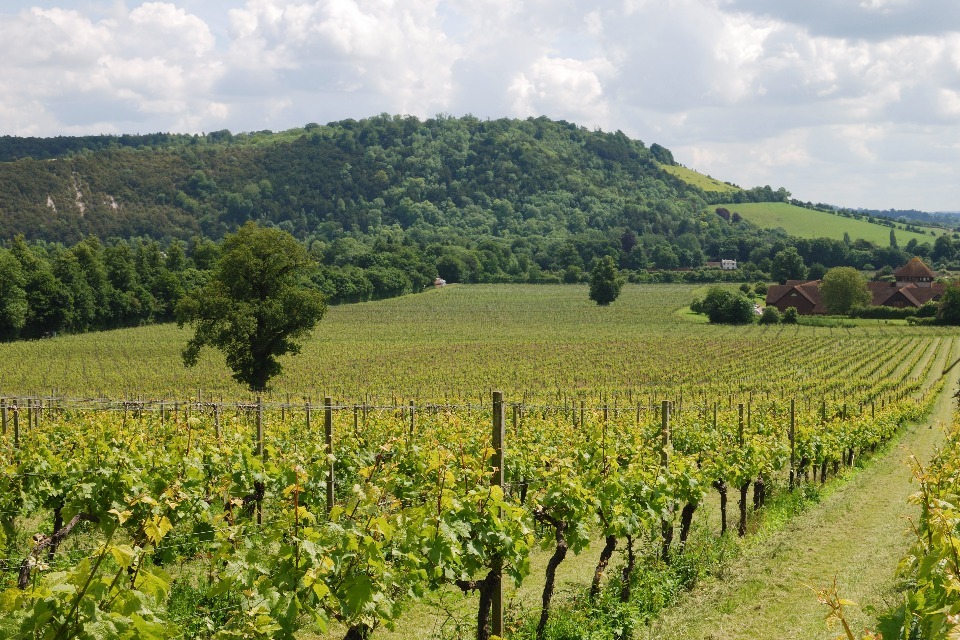On the eve of New Year reforms to the wine industry, Environment Secretary Steve Barclay today welcomed the scrapping of old rules inherited from the EU.
The reforms made possible after leaving the EU will spark innovation, encourage sustainable practices and reduce burdens on businesses.
In addition to the UK's long-standing status as a global wine trade centre, with the wine market worth more than £10 billion last year, England and Wales have a rapidly growing winemaking industry.
The UK now has nearly 900 vineyards, and hectares planted with vines in the UK have more than quadrupled since 2000. Viticulture – the growing and harvesting of grapes – is now the fastest growing agricultural sector in Britain, employing around 2,300 people full-time With an expected growth of 50% in 2018. Jobs by 2025
WineGB also notes that 2023 is Great Britain's largest ever grape crop, expected to produce an estimated 20-22 million bottles and more than 50% larger than Britain's previous record year in 2018.
Benefiting from the ideal growing conditions of southern England, English sparkling wine has seen a rise in popularity in recent years with 8.3 million bottles produced last year. Home-grown fizz is expected to be a popular choice for Brits to watch in the New Year.
From tomorrow (1 January 2024), English sparkling wine makers will no longer have to use mushroom-shaped stoppers and foil caps on bottlenecks, giving producers the option of opting for simpler packaging to reduce waste and costs.
Restrictions on the manufacture and sale of Beckett, a lower-alcohol drink dating back to ancient times, are also to be removed and are made by extracting the remaining quality of grapes left over after winemaking. This gives producers the option to create new revenue streams and capitalize on consumer demand for lower alcohol beverages.
In a move welcomed by wine merchants, the government will also remove the requirement for imported wine to have an importer's address on the label, reducing administrative burdens on companies.
Environment Minister Steve Barclay said:
Our exit from the European Union gives us the opportunity to review and abolish outdated and burdensome rules that have been holding our wine sector back.
The reforms we will introduce tomorrow will help our wine producers and merchants become more profitable, dynamic and sustainable – while freeing them from meaningless red tape.
Looking forward to 2024, I am committed to this government continuing to support world-class winemakers, vineyards and merchants to grow and innovate.
Nicola Bates, CEO of WineGB, the trade association for vineyard and wine producers in Great Britain, said:
We welcome the additional choice that comes from this first stage of the process of a wine repair consultation. There will be producers keen to take advantage of all options to reduce the materials used in bottles, so we can expect to see fewer flakes on sparkling bottles, allowing you to celebrate that a little faster, and with an environmental benefit.
We look forward to working with the Government and the Defra team on future consultations, which I am sure will be as constructive as those being undertaken now.
Earlier this week, the government announced that businesses will be able to sell pre-packaged sparkling wine in 500ml and 200ml sizes as well as a new 568ml 'pint' quantity.
The reforms that will come into force tomorrow (1 January 2024) follow this year's 'Wine: Reforms to Retain Consultation on EU Law' on the current extremely complex and bureaucratic 400-page Wine Rulebook. The changes aim to facilitate international trade and promote innovation and domestic growth.
The UK wine market was worth more than £10 billion in 2022 from on-trade and on-trade sales, and the UK's developing domestic production sector has attracted significant global investment. The UK is a global wine hub. It is home to a diverse and dynamic wine sector and is the world's second largest wine importer by value. In 2022, off-trade sales of still, sparkling and fortified wines across supermarkets, convenience stores and specialist off-trade licenses in the UK were worth around £7.6 billion, while on-trade sales through hospitality outlets were worth an estimated £3.5 billion. . one billion. In comparison, the local winemaking sector in England and Wales is very small, but it is growing rapidly and gaining a global reputation for quality. Production reports for 2022 show a 36% increase in production. The area planted with vines witnessed a growth of 74% between 2017 and 2022 (from 2,257 hectares to 3,928 hectares).


